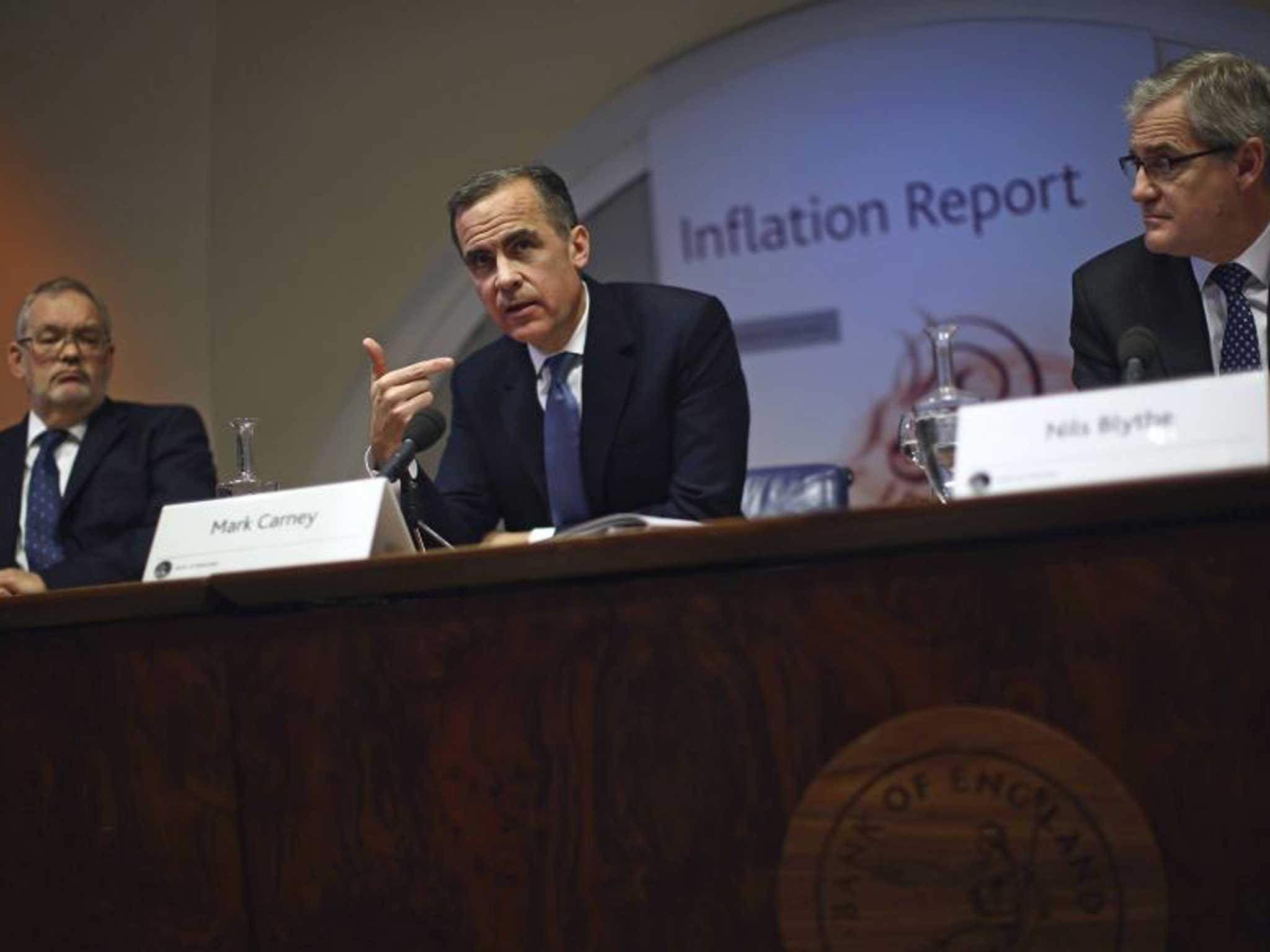Julian Knight: Carney's correct in climbing down over raising rates
The Bank of England Governor may have made a humiliating retreat, but he was right to do so

As climbdowns go it was rather surefooted and elegant. In fact, Mark Carney, the Governor of the Bank of England reminded me of one of those snowboarders at the Winter Olympics performing a trick at the apex of their jump.
Mr Carney was all deftness and flexibility in front of the camera. Nevertheless, the Governor's decision to abandon his previous measure (only introduced a few months ago) of when to raise interest rates was humiliating and unprecedented, but ultimately absolutely correct.
It would be foolhardy to raise rates because unemployment is shrinking fast, particularly with inflation low and borrowers still massively overburdened with debt.
I am intrigued though about the Bank of England's forward thinking that rates could go up in the second quarter of 2015, which would be slap bang in the middle of a general election; that will be an interesting test of the Bank's independence granted it by Gordon Brown back in 1997.
Overall, though, Mr Carney's shift from inflation to unemployment as a determinate of future interest rate rises was an error that fortunately he has the good sense not to compound.
So what though does this meant to you? Well, it only really delays the inevitability of a rise in interest rates and such now is the forward guidance issued by the Bank that markets are already factoring in a series of rises in 2015 and 2016.
Don't forget a crucial point here, that the interest rate you pay is not set by the Bank of England (or else you would be paying 0.5 per cent which is comfortably below inflation) but what markets decide.
In fact, ever since the financial crisis there has been a wide differential between Bank of England rates and what you actually pay for your home loan – and savings for that matter (currently there are no cash individual savings accounts which pay above inflation).
It will be a major test of the soundness of the financial system and confidence in markets when rates do eventually go up.
This could well be the moment when we draw a line under this drawn-out financial crisis – or at least the first stage of it which relates to bank and personal debt.
There is still the chance that a future crisis may engulf government finances, after all it has been ruinously expensive standing as backstop not just to the banking system but to the wider economy.
Monty the cat
I have been a sharp critic of the Money Advice Service (MAS) in the past.
I felt it was an organisation that was clearly too paternalistic and top down in its approach and as a result it wasn't reaching the people it ought too.
I suggested that it ought to focus on a few core messages – a little like the successful don't drink and drive campaign – and hammer away at them in order to change behaviour. Rather this than constructing online tools that frankly are so couched in financial health warnings and not wishing to make a judgement as to be almost worthless.
At last, though, it seems MAS is taking criticism such as I have offered on board.
For instance, I was in the car the other day and heard a rather funny advert. It featured the brilliant comedy actor Matt Berry referring to ordinary things around the house including a boiler and "Monty the Cat" as a ticking timebomb and saving just £3 a day for a year would mean that an emergency fund of more than £1,000 could be built up enough to take care of emergencies.
It was a good message and one I hope MAS repeats ad nauseum.
You see, somewhere along the line we have lost sight of certain financial truths in this country from Shakespeare's Polonius cautioning "never a borrower or a lender be" to Mr Macawber's warnings on debt.
Too many of us think we should pay later while living for today on the never never.
It is as much a cultural shift we need as straight financial advice. It is in bringing about this shift that MAS should focus its efforts.
Who knows, maybe some in the organisation get this now.
Join our commenting forum
Join thought-provoking conversations, follow other Independent readers and see their replies
Comments
Bookmark popover
Removed from bookmarks